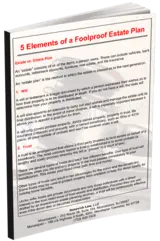The executors or administrators of estates in Manalapan Township have many legal obligations, such as ensuring that the estate pays all relevant taxes to federal and local authorities. While an executor will not be held personally liable for these taxes if payment does not occur, the estate may be able to hold an executor responsible if a failure to pay results in penalties or other legal trouble.
As a result, it is imperative for you as an executor to understand what taxes may be relevant to an estate under your administration. It is possible that the estate may need to pay taxes to the state or the federal government. In addition, the people who inherit the assets may need to pay taxes on those payments. An attorney can provide more detailed information about the taxes involved in the Manalapan Township probate process.
The Estate May Need to Pay Taxes During the Probate Process
The concept of an estate tax has been at the forefront of political debates for decades. In the past, local and federal governments have collected a portion of the estate’s total value during the probate process. While this is still true for some estates, most will not need to pay any taxes.
At the state level, there is no longer an estate tax. According to the NJ Division of Taxation, an estate for a person who died on or after January 1, 2018, must now pay no estate tax. If the death occurred between January 1, 2017, and January 1, 2018, the tax only applied to estates with a total value of $2 million or more. For deaths before 2017, the tax applied to estates with a value of at least $675,000. For these reasons, most executors of estates in Manalapan Township will not need to pay estate taxes. However, it is worth noting the date of death to ensure that no payment is necessary.
Similar rules apply to the payment of federal estate taxes. The Internal Revenue Service says that the value of the estate is the sole determining factor as to whether an estate must pay taxes. As of 2020, only estates with a net value of $11,580,000 or more will be subject to the tax. This value will increase to $11,700,000 in 2021. A lawyer could help place a value on a Manalapan Township estate to determine if the federal estate tax applies.
The State Inheritance Tax
While the estate likely does not have to pay taxes in Manalapan Township, its inheritors likely will. The state levies a tax on all property that a person receives as a product of the probate process, regardless of whether the beneficiary is a resident of the state or lives elsewhere. The amount of the tax varies based on a variety of factors, including:
- The identity of the inheritor and their relation to the decedent
- The date of death value of the assets
- The type of assets that the decedent owned
- Whether the decedent lived in the state
Ensuring that an inheritor pays their taxes is not the executor’s responsibility, but advising inheritors of this obligation is part of being an effective estate administrator.
Understanding the Taxes Involved in the Manalapan Township Probate Process is Key to Effective Administration
As an executor of an estate in Manalapan Township, it is your duty to ensure the administration proceeds efficiently and adheres to all the legal requirements. A major part of this role is ensuring the payment of the obligations of the estate. In some situations, this may include the payment of estate taxes.
Usually, these payments only apply to estates with millions of dollars of value. Even so, it is worth understanding these laws to ensure that your administration of the estate is effective. Additionally, the inheritors will also need to understand their tax obligations. Contacting a seasoned lawyer could allow you to fully understand how taxes are involved in the Manalapan Township probate process. Call today to schedule a consultation.

 (856) 439-6223
(856) 439-6223
